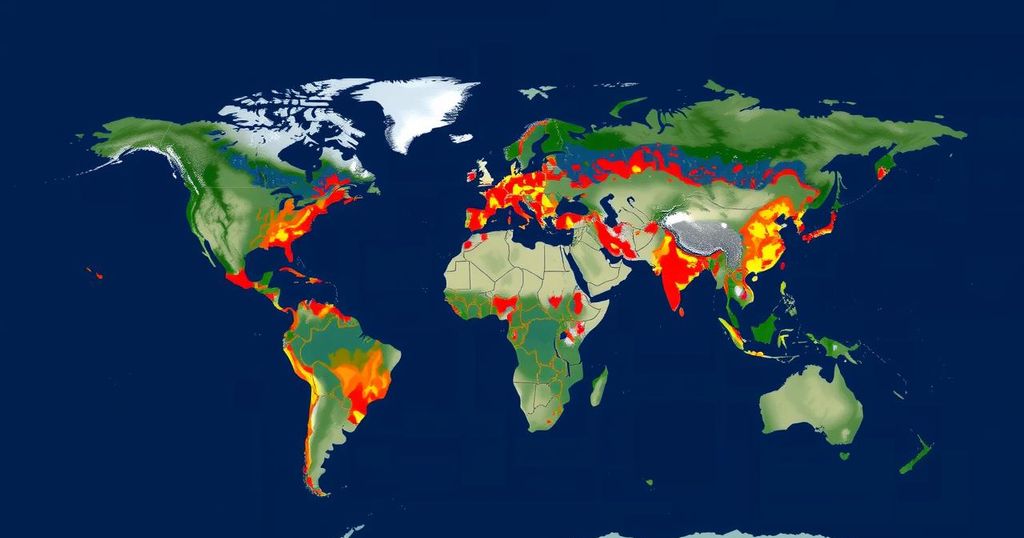Global Weather Hazards Summary: Key Weather Events from November 21 to 27, 2024

The Global Weather Hazards Summary for November 21 to 27, 2024, reports continued ENSO-neutral conditions, heavy rainfall in Africa, flooding from Tropical Storm Sara in Central America, and ongoing flooding issues in Colombia. Various regions in Africa face significant weather challenges, including severe rainfall and drought, while forecasts predict abnormal heat in northwestern Africa and parts of Madagascar.
The Global Weather Hazards Summary for the week of November 21 to 27, 2024, highlights continued ENSO-neutral conditions globally. Notably, heavy rainfall persists across various regions in Africa, specifically in Kenya, southern Somalia, and Mozambique, while Central America faces challenges due to Tropical Storm Sara. In Colombia, significant flooding is also reported due to heavy precipitation.
In Africa, central and eastern Kenya, along with southern Somalia, are witnessing substantial rainfall, impacting local ecosystems. The Sudd wetlands in South Sudan remain flooded, although some improvement is noted along the upstream White Nile. Heavy rainfall in northeastern Ethiopia has resulted in significant flooding, while countries such as Guinea-Bissau, Guinea, northern Sierra Leone, central and southern Mali, Senegal, as well as southern Niger, northern Nigeria, central and southern Chad, and northern Cameroon, have experienced severe flooding events. Fortunately, flooding conditions in Nigeria have improved.
On the other hand, insufficient rainfall during the months of July and August has caused abnormal dryness in several West African nations including Ghana, central Togo, central Benin, and parts of western Nigeria. This dry spell has extended to northern Ghana, eastern Nigeria, and the central and eastern regions of Cameroon, leading to drought conditions. Meanwhile, southeastern Ethiopia’s lowlands and central to southern Somalia continue to suffer from below-average rainfall, although recent rainfall in eastern Kenya and southern Somalia has slightly mitigated these drought conditions.
Forecasts predict abnormally high temperatures for northwestern Africa and parts of Madagascar, potentially exacerbating existing weather issues. In Angola, localized heavy rains could lead to flash floods, while the Ituri province in northeastern DR Congo faces continuous heavy rainfall and flooding due to Lake Albert overflow since early November. Such weather events underscore the ongoing challenges posed by climate conditions across the African continent.
This summary provides insights into the current global weather hazards from November 21 to November 27, 2024. It emphasizes the impact of weather phenomena such as ENSO-neutral conditions and significant rainfall in Africa and Central America. Understanding these weather patterns is crucial for anticipating potential hazards, such as flooding and drought, which can severely affect agriculture, infrastructure, and populations in affected regions. The summary also highlights the implications of abnormal weather conditions on local communities and economies, underscoring the need for readiness and response strategies.
In conclusion, the Global Weather Hazards Summary details the persistent heavy rainfall in various regions, particularly in Africa and Central America, alongside an overview of flooding and drought conditions facing different areas. The interplay of weather phenomena, such as ENSO-neutral conditions and localized heavy rainfall, presents both immediate risks of flooding and longer-term challenges of drought in several countries. The report highlights the necessity for ongoing monitoring and effective response measures to address these increasingly severe weather challenges across the globe.
Original Source: reliefweb.int






